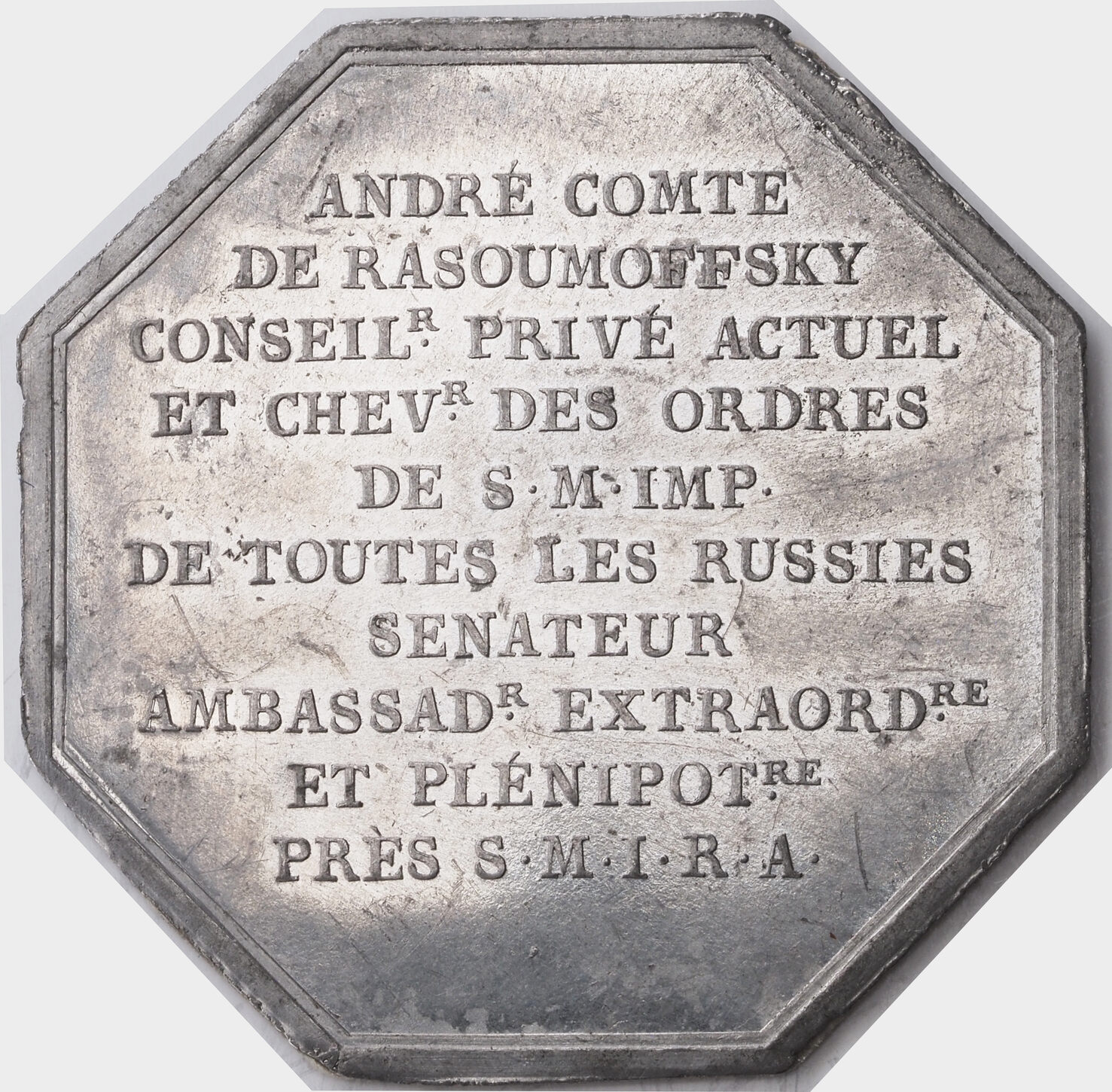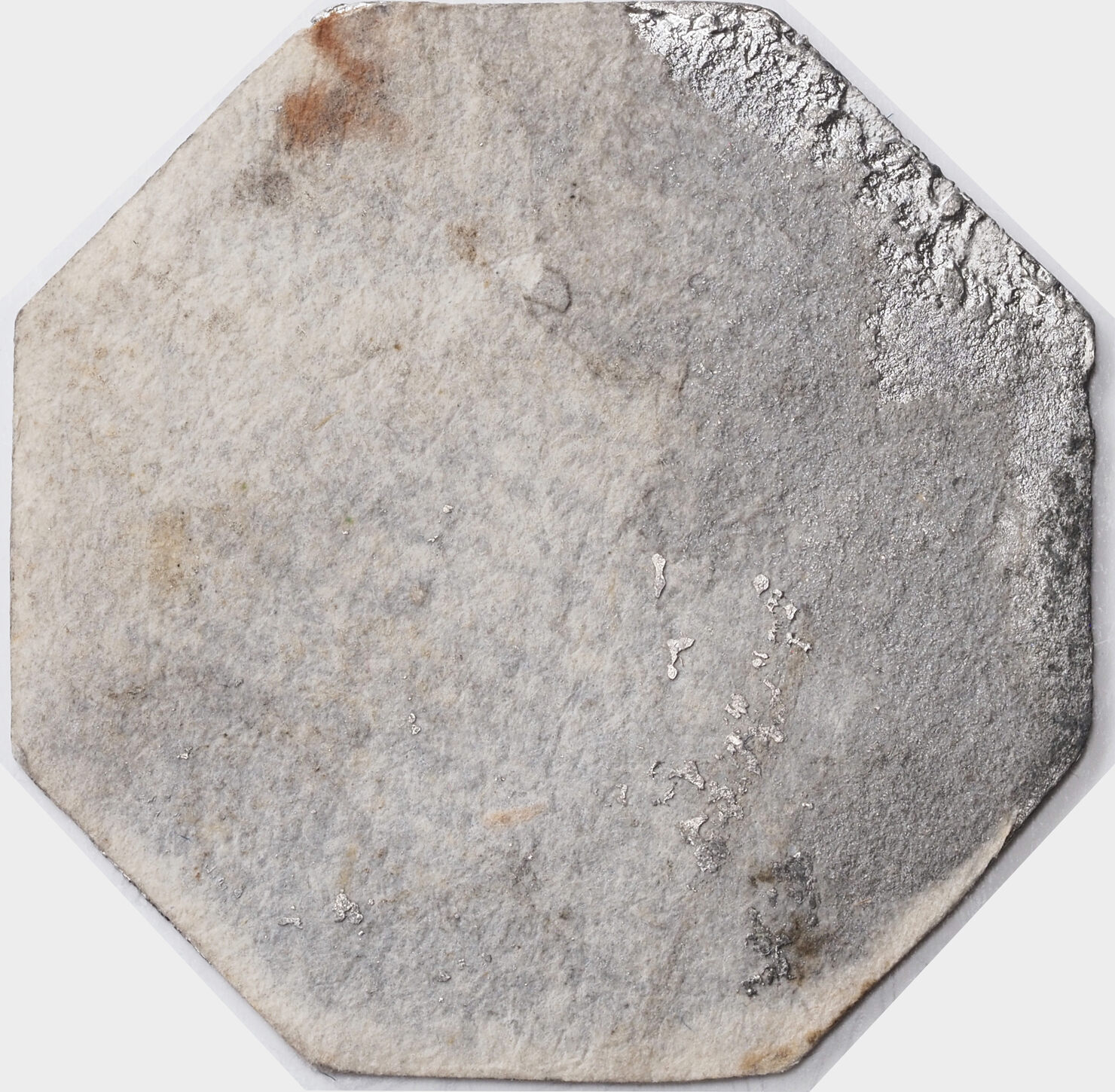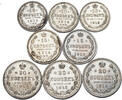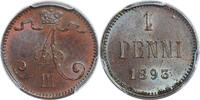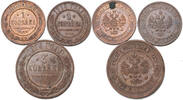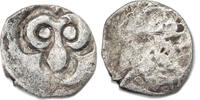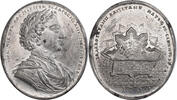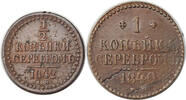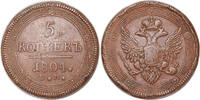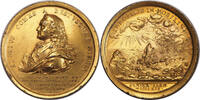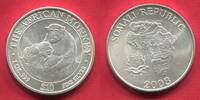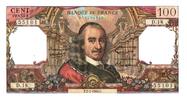MA-ID: 45102454
Klantbeoordeling Stankov
O.K.
Gran profesional,todo perfecto
ok
Everything OK.
RUSSIA Medal (Aktenabschlag) 1814 The Capture of Warsaw Silver Medal. AU
Filip Stankov eU 

2
Verkoper op MA-Shops sinds 2 jaar
435 Beoordelingen,
100 % Positief (Laatste 24 maanden)
Verzending wereldwijd
235,00 EUR
Korting 160,00 EUR / 41%
BTW: Margeregeling
Excl. 15,00 EUR Verzending ( to Nederland )
Levertijd: 6 - 10 dagen
Excl. 15,00 EUR Verzending ( to Nederland )
| bestelhotline +31 (0)6 8317 0586 |
| Betaalmethoden |
| Overboeking |
1814, Russia. Count Andrey Kirillovich Razumovsky (Ambassador of Emperor Paul I): Uniface Trial Strike Medal.
Conditoin: Minimal digs, parchment remains in reverse, otherwise a nice AU!
Mint Year: ca. 1801-1814 (not earlier than 1801 and not later than 1814 as the Count´s title changed to Prince during 1815).
Denomination: Medal (Uniface Trial Strike / Aktenabschlag) - Count Andrey Razumovsky, possibly for his participation in the Congress of Vienna (1814).
Reference: Wurzbach -, cf. Künker, Auction 157, lot 6449 var. There a regular strike in silver, featuring the coat-of-arms of the count on the here blank side!). Very Rare!
Material: Lead alloy (parchment remains in reverse, as usual)
Diameter: 37mm
Weight: 4.95gm
Obverse: Armored bust of Christian VI, wearing Order of the Elephant, right.
Legend: ADNRÉ COMTE DE RASOUMOFFSKY CONSEILr. PRIVÉ ACTUEL ET CHEVr. DES ORDRES DES S.M.IMP. DE TOUTES LES RUSSIES SENATEUR AMBASSADr. EXTRAORDre. ET PLÉNIPOTre. PRÈS S.M.I.R.A.
Translated: "Andrey, Count Razumovsky, privy councillor and Knight of the Order of his Majesty, Emperor of all Russians, Senator Ambassador and Plenipotentiary of His Majesty, Emperor of Russia, Alexander."
Reverse: Blank withremains of pergament (as usual for such trial strikes, which were doen for purposes of documentation at the mint, in German also known as "Aktenabschlag").
Count (after 1815 Prince) Andrey Kirillovich Razumovsky (2 November 1752 – 23 September 1836) was the son of Kirill Razumovsky, the last hetman of the Zaporizhian Host, and of his wife, Catherine Naryshkina, a cousin of Elizabeth of Russia. In 1792, Andrey Kirillovich was appointed the tsar's diplomatic representative to the Habsburg court in Vienna, one of the crucial diplomatic posts during the Napoleonic era.
In 1792 Count Andrey Kirillovich Razumovsky became ambassador in Vienna, where he kept contact with representatives of the European aristocracy, politicians and artists. While in Vienna, he built the Palais Rasumofsky, and also financed construction of a stone bridge across the Danube. As a patron of the arts, Razumovsky established an art gallery, and commissioned Beethoven to compose the famous Razumovsky string quartets.
He was a chief negotiator during the Congress of Vienna that re-organised Europe in 1814, and asserted Russian rights in Poland.
Conditoin: Minimal digs, parchment remains in reverse, otherwise a nice AU!
Mint Year: ca. 1801-1814 (not earlier than 1801 and not later than 1814 as the Count´s title changed to Prince during 1815).
Denomination: Medal (Uniface Trial Strike / Aktenabschlag) - Count Andrey Razumovsky, possibly for his participation in the Congress of Vienna (1814).
Reference: Wurzbach -, cf. Künker, Auction 157, lot 6449 var. There a regular strike in silver, featuring the coat-of-arms of the count on the here blank side!). Very Rare!
Material: Lead alloy (parchment remains in reverse, as usual)
Diameter: 37mm
Weight: 4.95gm
Obverse: Armored bust of Christian VI, wearing Order of the Elephant, right.
Legend: ADNRÉ COMTE DE RASOUMOFFSKY CONSEILr. PRIVÉ ACTUEL ET CHEVr. DES ORDRES DES S.M.IMP. DE TOUTES LES RUSSIES SENATEUR AMBASSADr. EXTRAORDre. ET PLÉNIPOTre. PRÈS S.M.I.R.A.
Translated: "Andrey, Count Razumovsky, privy councillor and Knight of the Order of his Majesty, Emperor of all Russians, Senator Ambassador and Plenipotentiary of His Majesty, Emperor of Russia, Alexander."
Reverse: Blank withremains of pergament (as usual for such trial strikes, which were doen for purposes of documentation at the mint, in German also known as "Aktenabschlag").
Count (after 1815 Prince) Andrey Kirillovich Razumovsky (2 November 1752 – 23 September 1836) was the son of Kirill Razumovsky, the last hetman of the Zaporizhian Host, and of his wife, Catherine Naryshkina, a cousin of Elizabeth of Russia. In 1792, Andrey Kirillovich was appointed the tsar's diplomatic representative to the Habsburg court in Vienna, one of the crucial diplomatic posts during the Napoleonic era.
In 1792 Count Andrey Kirillovich Razumovsky became ambassador in Vienna, where he kept contact with representatives of the European aristocracy, politicians and artists. While in Vienna, he built the Palais Rasumofsky, and also financed construction of a stone bridge across the Danube. As a patron of the arts, Razumovsky established an art gallery, and commissioned Beethoven to compose the famous Razumovsky string quartets.
He was a chief negotiator during the Congress of Vienna that re-organised Europe in 1814, and asserted Russian rights in Poland.
| Verzendkosten | ||||
|---|---|---|---|---|
| tot 70,00 EUR | 100,00 EUR tot 300,00 EUR | 300,00 EUR tot 2000,00 EUR | 2000,00 EUR tot 35000,00 EUR | |
| Duitsland | 10,00 EUR | 12,00 EUR | 15,00 EUR | 25,00 EUR |
| Oostenrijk | 8,00 EUR | 10,00 EUR | 12,00 EUR | 23,00 EUR |
| Verenigde Staten | 50,00 EUR | 50,00 EUR | 50,00 EUR | 35,00 EUR |
| Europese Unie | 10,00 EUR | 15,00 EUR | 20,00 EUR | 25,00 EUR |
| Wereld | 13,00 EUR | 15,00 EUR | 25,00 EUR | 35,00 EUR |
France 1964 100 Francs Corneille - 1964-07-02 - S...
Numiscollection
178,50 EUR
Aus Ansicht entfernen
|
Startpagina van de MA-SHOP | 0Winkelwagen | Algemene verkoopvoorwaarden | Contactgegevens | MA Algemene verkoopvoorwaarden | Privacybeleid | Garantie | MA-Shops Nieuwe artikelen Copyright ® 2001-2025, MA-SHOPS Coins All Rights Reserved. Designated trademarks and brands are the property of their respective owners. |
 Munten - Koop met garantie
Munten - Koop met garantie


